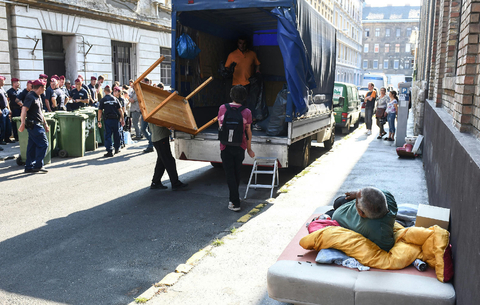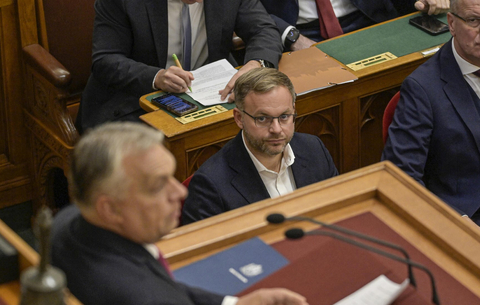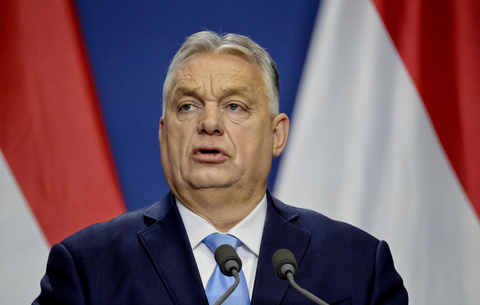What about the next months?
The next few months in Hungarian politics are going to be very interesting. If the coalition wins, then it will have to dig the country out of the hole it spent the last four years leading the country into. If Fidesz loses, the party will face structural and personnel changes. If Ibolya David sticks to her current possition, adopting the role of a constructive opposition, then she will be in a dreadfully lonely position.
Orban, trying to make the best out of a bad situation, evoked his party's joint labours with Ibolya David's party in the years of the regime change. He displayed willingness to make sacrifices. Both he and his vice-president, Zoltan Pokorni, hinted they would even allow David to become prime minister: only regime change mattered. But David seems to have turned her nose up at this offer, despite having earlier said there would only be a right-wing government if she were the prime minister. When she said this, everyone smiled. Now things have changed. Ibolya David has become the symbol of how to stand up to Orban. She clearly expects this to pay off. In secret, she may be thinking that the government will be forced into drastic and unpopular spending cuts, and that Fidesz's decline will continue on her other flank. Thus, in 2010, her party could once again be as serious a force as Fidesz on the right wing.
The strategy of unifying the various right-wing movements, bringing people like Mikola and Semjen into the tent, both of whom are widely seen as intolerant, failed to live up to the hopes vested in it. Once again, Orban miscalculated. The centre-left coalition's relaxed campaign was still too much for Fidesz to neutralise. Mikola and Semjen's self-destructive speeches inspired young people to stay at home.
Fidesz's slogan, 'We are worse off than than four years ago,' was intended to be searing. But it did not reach as many voters as it was meant to. It really did seem that the Socialists were offering a bright future, while Fidesz were serving up a campaign based on irritability and hopeless despair. It was only in the eleventh hour that Fidesz's orange-coloured 'Go Hungary' posters were unveiled, with smiling faces, but it was too late by then. Fidesz failed in its ultimate aim of tempting uncertain voters over into its camp.
Thus far, there is no sign of the same kind of inter-round intensity that we saw four years ago. But the question still remains: can Viktor Orban catch up? Will he try, or will he just accept that the coalition's lead cannot be matched? He said at Buda Castle that he would struggle (to his last breath?), but his facial expression suggested otherwise. Without Ibolya David, Fidesz can hardly hope to gain 70 seats. Another defeat will inveitably lead to lengthy discussions inside Fidesz's 'civic alliance', and maybe the conclusion will be that the conservative wing has lost its way. Will they be able to discuss this openly and intelligently? Will they be able to draw the necessary conclusions - in terms of personnel?
If the coalition wins, it will have to dig the country out of the hole it has been leading the country into over the past four years. Fidesz is threatened with collapse, which may well finally kick the party in the right direction. If Ibolya David sticks to her guns, building a new kind of constructive opposition politics, then she will not be popular with the socialist and free democrat wings. Yet Fidesz will continuously criticise her for supporting Gyurcsany's government from the outside. The MDF will be in a terribly lonely position.









